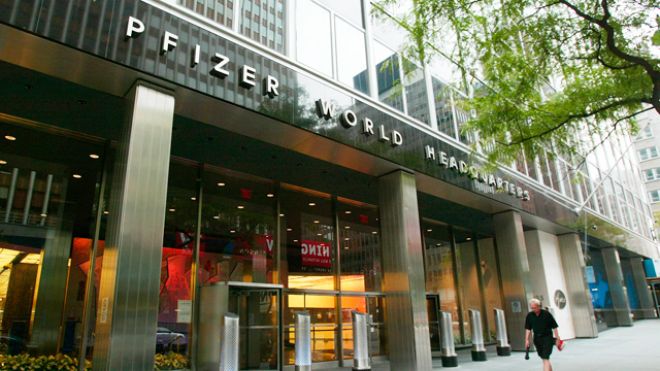“If anyone believes that the downsizing of the PMU industry here in North America is advantageous for the mares and foals who suffer at the hands of Big Pharma, they are sadly mistaken” — Jane Allin

The news in January 2009 of pharmaceutical giant Pfizer’s announcement to take over rival company Wyeth for $68 billion in a cash and stock merger brought speculation and uncertainty regarding the fate of the PMU farming industry in North America. At that time Norm Luba, executive director of The North American Equine Ranching Information Council (NAERIC) posited that it was too early to assess the impact of the Pfizer-Wyeth merger. But more aptly, and much more perceptively, Shane Boyes, a registered Quarter horse-owner and PMU producer in Saskatchewan made the comment:
“They made a billion dollars from sales of Premarin alone last year. I don’t think Pfizer would dump a billion dollar industry. We will just have to wait and see what happens.” [1]

Indeed the strategy behind Pfizer’s announcement was in part to garner the lucrative HRT segment of Wyeth’s portfolio. Historically, Pfizer’s reputation as an innovative drug maker is less than stellar and they are renowned for securing drugs with several years of patent protection, high sales profits and potential future blockbusters in late-stage testing for FDA approval. There was no question that Pfizer would retain these product lines given the profits realized from these drugs derived from pregnant mares urine regardless of the inexcusable exploitation of women and horses alike. And with the impending approval of Aprela®, a combination HRT-osteo drug, in Europe, Japan and North America profits are expected to climb even further despite the fact that conjugated “equine” estrogens are classified as carcinogenic agents. In both 2010 and 2011 Pfizer’s revenues worldwide from the sales of the Premarin® family of drugs were in excess of 1 billion dollars. [2]
Disgraceful and disheartening.
This brings us back to the apprehension expressed by Luba and Boyes.
No, they need not have worried about Pfizer getting out of the HRT business. That was never an option nor was it part of their strategic plan. What they did have to worry about was the stability of the PMU industry in North America.
The gradual downsizing of the PMU ranches began shortly after the WHI results were released and now stand at approximately 22 farms with an estimated total of 800 to 900 mares after the shuttering of a farm in North Dakota earlier this year. A far cry from 2002 and 2003 where there were as many as 300 PMU farms housing 40,000 mares that churned out gallon upon gallon of estrogen-rich urine.
While it is true that immediately following the release of the WHI study, citing the horrors associated with CEE-derived HRT, there was a precipitous drop in sales of Premarin® and Prempro®, some of that market was reclaimed in time via reduced dosage recommendations, aggressive marketing strategies, price increases and the wide availability of these drugs without prescriptions through Internet sales.
What no one realized at the time was that Wyeth had probably begun to move their PMU facilities prior to or just after the damning results of the WHI were released to the public. As evidenced by their ghost written Prempro® and Premarin® articles between 1996 and 2004, Wyeth was well aware of the risks involved. It was only a matter of time before their unethical marketing tactics were exposed.
A simple Internet search shows that several pharmaceutical-based companies in mainland China and India produce bulk conjugated estrogens in powder form. Interestingly enough, or perhaps clearly enough, Wyeth/Pfizer is and has been a customer for several years. Whether their procurements are limited to conjugated estrogens is unknown. But really, who else would purchase these products in such quantities without a vested interest in them? Moreover, the Premarin® patent only just expired in February 2012 and hence no generics were permitted on the market up until this time.
In fact, according to information we procured from an inside source from one such company, PMU farms have been in operation in Northern China for the last 8 years. The company’s manufacturing site is also in the same general location.

Based on the limited information available it is currently unknown exactly how many of these farms exist and the number of mares housed at these facilities. Nonetheless it is evident that Wyeth, in its unremitting deception, quietly contracted out the manufacture of these conjugated equine estrogens to avoid publicity surrounding the evils of CEEs while concealing their true agenda.
It is well recognized that both Pfizer and Wyeth established presence in China in the mid-eighties as strategic protocol to gain a foothold in the rapid economic growth and tantalizing market potential for a variety of pharmaceutical products. Why then the “cloak and dagger” regarding the PMU industry? Wyeth could just as easily have launched their own PMU enterprises rather than rely on secondary network distribution systems. Perhaps cost was a factor or conceivably a more sinister motive was involved or perhaps a combination of both. One will never know.
As for the manufacturers of conjugated equine estrogens in India, and possibly other countries, it is only speculation at this point. One thing however is clear. If anyone believes that the downsizing of the PMU industry here in North America is advantageous for the mares and foals who suffer at the hands of Big Pharma, they are sadly mistaken. With revenues of over 1 billion dollars in 2011 and sales projected to skyrocket with the introduction of Aprela® to an aging population, the PMU industry will be alive and kicking, just not here in North America. As history tells us the horses are likely to suffer to a greater degree given the heinous crimes against animals that China is so very renowned for.

In any case, there is no question that Pfizer/Wyeth will continue to market and sell this vile family of drugs regardless of the fact that the patent expiration date for Premarin® was February 26, 2012. Prempro® is patent protected until January 2015. and once Aprela® is approved for sale it will have patent protection for many years and so a monopoly of sorts is guaranteed. That said Pfizer has seemingly made a very tactical move in regard to Premarin® among other drugs in their repertoire, most notably the blockbuster statin Lipitor® which lost patent protection in November 2011.
Interestingly enough on February 17, 2012, just shortly before the Premarin® patent expired, Pfizer and Zhejiang Hisun Pharmaceutical, a leading pharmaceutical company in China, signed a framework agreement pursuant to an earlier announcement which would establish a joint venture to develop, manufacture and commercialize off-patent pharmaceuticals in China and global markets.[3] The key word here is “off-patent”.
A pattern similar to that observed in Europe in the 1980s and 1990s driven by EU over-regulation of the pharmaceutical industry is currently replaying itself here in North America. In part due to a rise in regulatory pressures here in North America as well as hefty plaintiff compensatory awards in mass torts drug litigation.
However a more compelling reason for Pfizer and other large drug companies to ramp up investments in emerging markets, particularly China, has been widely interpreted to be a response to the loss or impending loss of patent protection and subsequent profits for several of their blockbuster drugs. According to IMS health when a drug loses patent protection more than 80% of its prescription sales are replaced by generics within 6 months. [4]
Even more sobering for Big Pharma, DRX Inc., a health-care data provider reports that during the first 180 days after patent expiration the price falls about 10% and as much as 80% in some cases thereafter. [5]
For big name drugs this translates to big money. In 2011 Pfizer’s top money-making drug Lipitor netted them over $9 billion, the Premarin® family of drugs (12th) $1 billion with the overall revenue from the top 15 drugs on the list a whopping $32 billion representing over 55% of the total revenue from biopharmaceutical products. [6]
With this much money at stake this is not simply a cost-effective strategy, the realignment also has potential to drive brand sales over the longer term and substantially boost overall sales given China’s burgeoning population. As a number of industry researchers has indicated, China’s prescription drug market, set to be the world’s second largest by 2020, is estimated to be worth more than $110 billion by 2015, from $50 billion in 2010. [7]
More importantly, from our perspective, what will be dealt the horses?
Forever swallowed in the melee of human progress as we know it there is nothing to suggest that compassion and respect for our fellow companions on this earth will ever be realized by Big Pharma – animal or human alike. Big Pharma has been described as an albatross of medical monopoly that exploits illness for power and profit while spending almost twice as much on promotional propaganda as it does on research and development. To think that the horses would be spared is imaginably naïve.
Nothing has been, or ever will be, appealing or beneficial about the PMU industry and the Premarin® family of drugs; they are clearly harbingers of death from both sides of the equation.

Sadly the relocation of the PMU industry to distant and less regulated countries will carry with it the legacy of deceit, exploitation of the innocent and ever-zealous hunger for profit at all costs. The writing is on the wall. It is only a matter of time before Pfizer/Wyeth completes the transition.
No longer will the cataclysm and protest against the atrocities of PMU farming in North America be taken at face value by Big Pharma. No longer will Pfizer need to give this reprehensible exploitation the gloss of moral sanction. A new dawn for Pfizer perhaps – a blood red dawn for the PMU mares and foals, one governed by misery and certain slaughter.
Regrettably the suffering will continue at its worst; the new beginning in China bodes a critical end for the innocent mares and their foals. Distance – the great separator. Who will be there for them in their new homeland?
Perhaps there is a glint of hope.
While the horrors of animal abuse in China have painted an ugly picture for many around the globe, over the past several years there have been major developments in support of the plight of animals at the hands of these abhorrent and unforgiving industries and practices. Raising awareness and educating those who now preside over the welfare of the PMU mares and foals will be paramount in transferring our efforts to a distant land unaccustomed to the realities of the negative implications of these drugs from both a human and equine perspective.
It does not matter where one hails from; it is the goodness in each of us that promotes welfare and justice.



